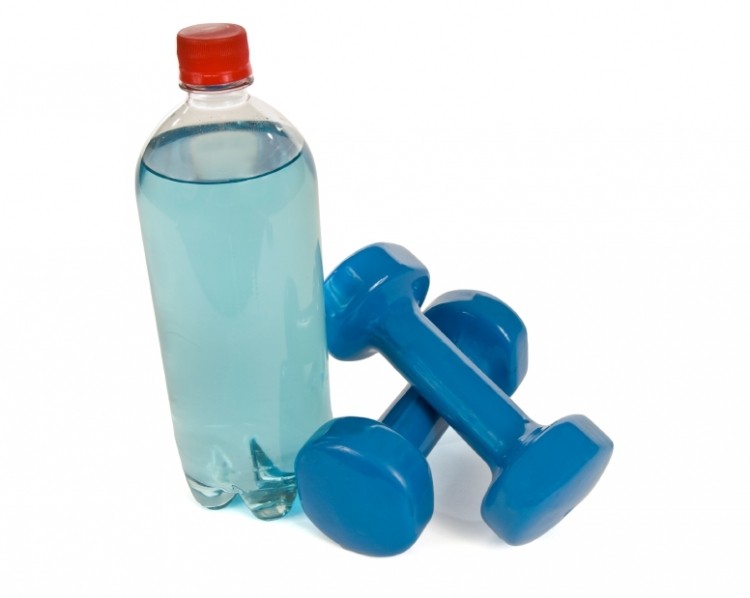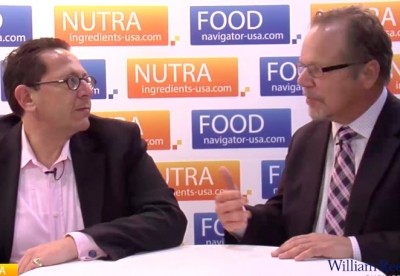Nascent 100% confident in the quality and safety of its PQQ, despite FDA safety concerns

The FDA issued a letter to the company on October 29, 2013 stating: “FDA has carefully considered the information in your submission and the agency has significant concerns about the evidence on which you rely to support your conclusion that the dietary supplement product containing ‘Pyrroloquinoline quinone’ will reasonably be expected to be safe under the conditions of use described in your notification.”
Tom Schrier, VP of sales and marketing for Nascent, told us that the company has been working on answering the agency’s questions and concerns, and recently re-submitted the notification for PureQQ, which remains commercially available.
FDA was contacted for comment on May 2, but had not responded in time for publication.
NDI notifications
Every ingredient that qualifies as an NDI (i.e. one that wasn’t on the market in an article of food on or before Oct. 15, 1994) needs to have a notification on file with FDA 75 days before going to market.
“Remember it’s a notification process and not an approval,” said Duffy MacKay, ND, Sr VP of scientific & regulatory affairs for the Council for Responsible Nutrition (CRN). “FDA has every right to request more information.”
Dr MacKay added that the company’s approach was “perfectly legal but not without risk”.
“CRN wants companies to submit NDINs to the FDA on novel ingredients, and we agree that there shouldn’t be knock off NDIs,” he said. “The less risky approach is to obtain the ‘Good Day’ letter in hand before going to market.”
PQQ
PQQ has been the subject of increased scrutiny in the marketplace. Mitsubishi Gas Chemical began developing PQQ in the early 2000s, and markets an ingredient under the brand name BioPQQ. Mitsubishi produces the ingredient via fermentation, making it a natural source of the ingredient. Mitsubishi filed a successful New Dietary Ingredient (NDI) notification with FDA on the compound.
PureQQ distributed by New Jersey-based Nascent Health Sciences then entered the market. This ingredient is produced in China via a synthetic process that yields a ‘bioidentical’ ingredient. Mitsubishi has strongly disputed that the NDI notification data on its ingredient should apply to Nascent's ingredient, including writing an open letter to industry on the issue.
Nascent’s Schrier told us: “Our position has been that Mitsubishi has an NDI for pure PQQ. Our material is also pure PQQ, so we’re allowed to sell. Despite this, we were recommended to file an NDIN, which we did.
“I am 100% confident in the quality and safety of our PQQ,” he added.
The FDA, however, was not convinced by the initial notification.
‘The agency has significant concerns about the evidence on which you rely…’
In the October 29, 2013 letter, Dr Daniel Fabricant, then director of the Division of Dietary Supplement Programs at the FDA, wrote: “According to your notification, you intend to market your ‘Pyrroloquinoline quinone’ for use in dietary supplements in capsule, tablet, or other suitable dietary supplement forms. Your recommended serving is ‘10-20 mg PQQ/day’. Your notification did not specify a target population. Your notification did not provide warning statements on the use of your PQQ.
The agency also listed other concerns, including an inability to identify the ingredient based on the manufacturing information provided, acceptance criteria for lead being three times the maximum recommended level reported by the European Food Safety Authority, and no provision of contaminant testing.
Lesions
The letter also stated that it was unable to establish the safety of the ingredient based on the 90-day oral toxicity data provided.
Chief among the concerns was the documentation of lesions in the kidneys of the lab animals used at a dose of 0.4 g/kg BW. “In the absence of a complete histopathology report, it is unclear how many animals had this lesion or how the lesion distribution and severity differed between the treated animals versus the control animals.
“… In the absence of history of use or additional animal studies on your product, it is unclear how your safety information forms a basis for a reasonable expectation of safety for lifetime daily chronic consumption of your ingredient at the proposed serving level.”
“… Introduction of such a product into interstate commerce is prohibited under 21 U.S.C. 331 (a) and (v).”
‘We’ve done everything we’ve been asked to do’
Nascent Health Sciences continues to sell the ingredient, and claims on its website: “PQQ has been accepted by FDA as a New Dietary Ingredient (NDI)”. Schrier said that this statement was a general statement and not specifically about the company’s PureQQ product.
Schrier confirmed that Nascent resubmitted the NDI notification in March with additional information following a conference call with the FDA. “We’ve done everything we’ve been asked to do,” he said.
The original submission was prepared by Intertek Cantox in a manner that the consultancy has done in the past, he said. “We were convinced it would be a slam dunk acceptance.”
‘Outrage’
Marc Ullman, an attorney with the firm Ullman, Shapiro & Ullman who represents Mitsubishi, took a harder line, telling us: “The Director of the Division of Dietary Supplement Programs signed the letter, and tells the company that it is completely out of compliance, and then the Agency does nothing. This is an outrage.”
“This is just another example of how FDA is broken,” he said. “This letter went out six months ago and is not yet docketed. FDA is potentially creating a public health risk.”
Ullman stressed that Mitsubishi remains the only company to have an NDI for PQQ.















